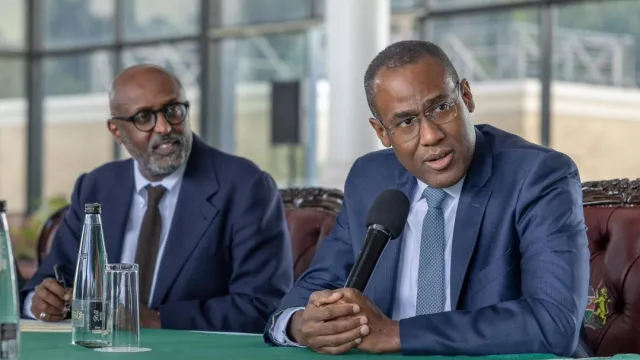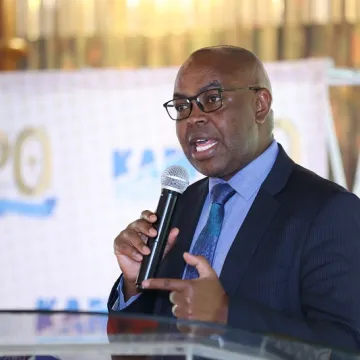Trim debt, fine-tune policies to spark growth—IMF to Kenya

Mr. Nigel Clarke (rught), the Deputy Managing Director of the International Monetary Fund (IMF), just concluded a three-day visit to Kenya, December 8–10, 2024.
The International Monetary Fund (IMF) has challenged policymakers in Kenya to reduce the country's debt vulnerabilities as part of measures to boost the economy's resilience against climate shocks.
This call comes even as an increasing percentage of Kenyans raise concern about the government's borrowing spree from the IMF and other institutions, noting that these finances have done little, if any, to help improve their lives.
For instance, between June and August 2024 at the start of the current fiscal year, Kenya was rocked by widespread revolt against President William Ruto's Finance Bill 2024, with suspicions rife that the IMF was the author of the controversial tax proposals.
In July, the Stanbic Bank Kenya PMI fell to 43.1 points from 47.2 in June, marking the worst reading since April 2021 attributable to protests and political instability relating to the cost-of-living crisis and concerns about Finance Bill 2024.
However, in its latest update, the IMF argued that the financing it offers Kenya, including the IMF’s Extended Fund Facility (EFF), Extended Credit Facility (ECF), and the Resilience and Sustainability Facility (RSF) arrangements, has helped alleviate market constraints and given the government room to access the global financial markets.
"I also emphasized the importance of ensuring that revenues are well spent by strengthening public financial management, governance, transparency, and anti-corruption frameworks," stated IMF Deputy Managing Director Nigel Clarke following a three-day visit to Kenya where he met senior government officials.
Also on the IMF's to-do list for the Treasury officials in Nairobi is a request to the government to firm up the country's fiscal framework to revitalise growth at a time when the bulk of revenue collections is going to debt obligations.
According to Clarke, Dr. Ruto's administration is facing a tough balancing act of meeting a wide range of expectations from the public, including both social and developmental needs. These expectations must, however, be met together with external and domestic loan obligations.
“I encouraged the authorities to continue efforts to create the fiscal space needed to finance priority investment and social spending, and make further progress in investing in human capital and greater inclusivity," noted Clarke.





